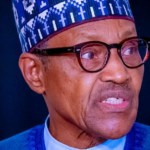It was because of war with the Kanuri that they came to Hausaland in parts of Nasarawa and Niger States. At the time of the Fulani invasion the Koro of Keffi continued their allegiance to the new Fulani Emir of Zaria, while those further West followed the deposed Habe King of Zazzau, who became Sarkin Abuja, now Suleja to whom they paid tributes.
The Koro of former Abuja Emirate are divided into three kinds. They are the Koro Ganagana, Koro Nulu and Koro Huntu. The Koro Ganagana are those who inter-married with Ganagana and speak their language. These are those of Zuba, Chachi, Tuchi, Abuchi, Gwazunu, Kpau, Wagu, Wuse, Aso and Idu.
The Koro of Wuse, Aso, Idu and Dutsen Alhaji inter-married with Gwandara and now speak Gwandara. The Koro Nulu are those of Ija-Koro, Dutsen Alhaji, Dogon Kurmi and Shere. The other Koros call them Koro Afiki, that is Koro of the lowland, because they did not come to Abuja from the same direction as the other Koros. The Koro Huntu are the those of Shakoyi. The Koro Ganagana and Koro Huntu all came from the same stock and had common customs.
The Koro Ganagana of Chachi, Zuba, Zuma, Ibo, Kakiyaku and Wagu were the earliest arrivals at Abuja. When they entered the region, they all settled within a mile radius around Zuma Rock. The Zuma Rock derived its name from two Koro words – ezhu and mwa, meaning guinea fowl and catching respectively, i.e. the place of catching guinea fowl.
The Chachi lived in the northern forest of Zuma; the Tukura of Zuma lived at the front of Zuma, inside the southern forest; the present people of Zuba lived at Shinapa, a plain south-east of Zuma while the present people of Luki, Yeku and Wagu lived at Gauraka hill. The Huntu lived east of Zuma, near a hill called Matan Zuma, meaning the wife of Zuma Rock. Thus, the area around the rock was the first settlement of the present-day tribe. The Koro regard Zuma as a supreme being and their protector.
The Koro Huntu, who were living at Zuma, left and settled at Zuba Kpare, near Kafi (presently Minna Emirate). One member of the royal family of the Koro who migrated from Shinapa because of chieftaincy dispute migrated to Tuchi. Another member of the royal family had his settlement not very far from Surubu, in a place called Ibo. Later the Koro at Gauraka hill moved to Luki, Yeku, Wagu, Ebwari and Esa, but remained loyal to the Koro of Shinapa now in Surubu. The Kutumbawa Hausa speaking Koro were Moslems and the other Koro were pagan. They all lived in the same place in Zuba. The pagan quarter was called Kukwadagba. But now they are all Moslems.
All instructions from the Habe King of Zazzau, Zaria were passed to the other chiefs through the Chief of Zuba, who acted as the chief messenger and Barde. He also carried their messages to the court at Zaria. He had a large territory under him. His title was Sarkin Yamma. His territory was bounded on the north by Izom, on the east by Juwa, on the South by Kuje and west by Duma in Lapai Emirate. Every year he paid tribute to the Hausa king of Zaria. The Hausa king gave him a sword and Alkyabba (burnouse).
In 1804, Muhammadu Makau, 60th King of Zazzau left Zaria and came to Zuba because of their war with Fulani. Muhammadu Gwabo was the then Chief of Zuba. They did not actually move into Zuba until 1807, during the reign of Ali-Mainasara. The Zagizagi fought with the Fulani for one-and-a-half years at the gate of Zuba. The war that started from Zaria initially ended at Zuba, prior to the later war at Farin-ruwa. The people of Zuba showed their loyalty to the Zagizagi and gave them all possible help.
The Koro of Gwazunu came from Zaria. The time of their coming to Abuja region was not known, but was thought to be before 1750. They first settled near old Izom town on the bank of river Gurara. On their arrival, a male baby was born and named Gwazunu. This was how the new town’s name was derived. They moved to their present village not long before the Hausa Zagizagi came to Abuja from Zaria.
From collection of articles written by Alhaji Rabi’u Ishaq, Galadiman Zazzau, Suleja.
 Join Daily Trust WhatsApp Community For Quick Access To News and Happenings Around You.
Join Daily Trust WhatsApp Community For Quick Access To News and Happenings Around You.


